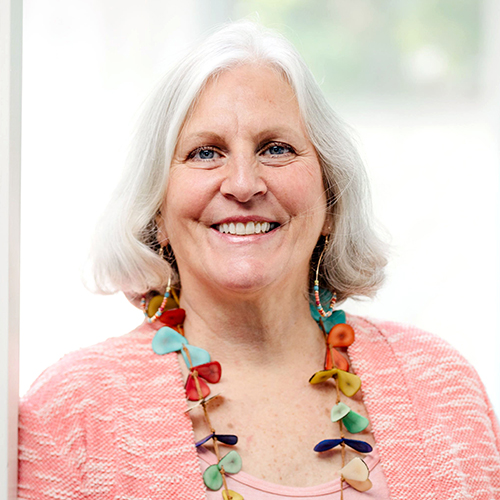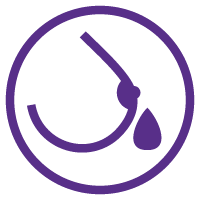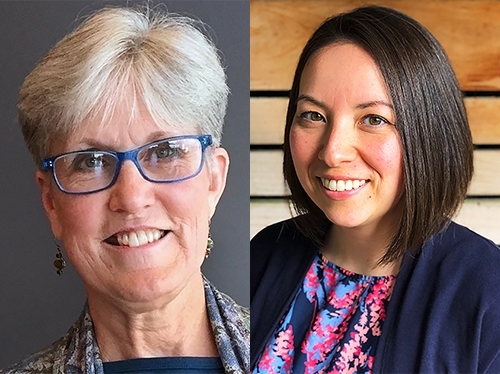 IBCLC Detailed Content Outline: Pathology / Maternal Focused CERPs - Section III B
IBCLC Detailed Content Outline: Pathology / Maternal Focused CERPs - Section III B
Access CERPs on Pathology / Maternal for the IBCLC Detailed Content Outline recertification requirements. On-demand viewing of the latest Pathology / Maternal focused IBCLC CERPs at your own pace.
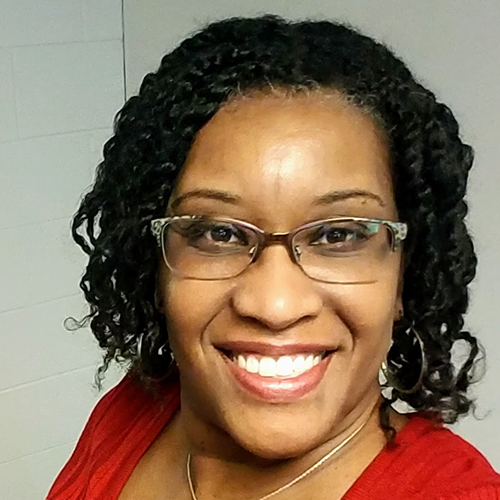
Counseling and Anticipatory Guidance to Reduce Perceived Insufficient Milk Production

Tameka Jackson-Dyer is an International Board-Certified Lactation Consultant (IBCLC) and Community Health Worker whose passion is community outreach. She holds a Bachelor of Applied Science in Health Studies from Siena Heights University, several lactation certifications and has been in the field for almost 20 years- honing her counseling and clinical skills in WIC agencies, OB/Gyn offices and Baby Friendly hospitals throughout the metro Detroit area. Her work as Manager of Community Collaboration with Coffective and consulting work with the EMU Center for Health Disparities, Innovations & Studies on their CDC/REACH and NACCHO grants- allows her to provide a voice for the populations who are historically underrepresented in conversations about breastfeeding support. To ensure she reaches as many families in her community as she can, the wife and mother of three owns a private practice, Crazymilklady Lactation Support Services, LLC, serves as Chair of the Metro Detroit/ Wayne County Breastfeeding Coalition, is a co-founder of the Southeast Michigan IBCLC’s of Color and volunteers as a Sisterfriend mentor with the Detroit Birthing Project.
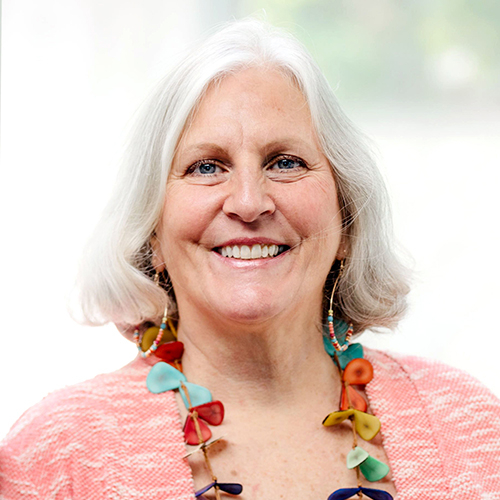
Creating Flow: Using Lymphatic Drainage Therapy for Breastfeeding Issues

Dr. Hazelbaker has been a therapist in private practice for over 30 years. She specializes in cross-disciplinary treatment and to that end has taken training in several modalities to best assist her clients. She is a certified Craniosacral Therapist, a Lymph Drainage Therapy practitioner, a Tummy Time™ Trainer, a Haller Method practitioner, A Pre and Perinatal Psychology Educator, a Lactation Therapist Diplomate, an International Board Certified Lactation Consultant and a fellow of the International Lactation Consultant Association.
She earned her Master’s Degree from Pacific Oaks College (Human Development specializing in Human Lactation) and her doctorate from The Union Institute and University (Psychology, specializing in Energetic and Transformational healing.)
People recognize her as an expert on infant sucking issues caused by various structural problems like torticollis, plagiocephaly, brachycephaly and tissue shock-trauma. She invented the Hazelbaker™ FingerFeeder and the Infant Breastfeeding CranioSacral Protocol™ to assist in the resolution of this type of infant sucking dysfunction.
Topic: Cranial Nerves: A Critical Component of the Process of Breastfeeding - [View Abstract]
Topic: Creating Flow: Using Lymphatic Drainage Therapy for Breastfeeding Issues - [View Abstract]
Topic: Finger Feeding: What Do We Know? What Should We Know? - [View Abstract]
Topic: Gamechangers: New studies that will change the way we think about tongue-tie - [View Abstract]
Topic: Infant Trauma: Impact on Breastfeeding - [View Abstract]
Topic: The Faux Tie: When is a "Tongue-tie" NOT a Tongue-tie? - [View Abstract]
Topic: The Impact of Bodywork on Infant Breastfeeding - [View Abstract]
Topic: What Does Torticollis Have to do with Breastfeeding? - [View Abstract]
Surprisingly, lymphatic congestion forms the foundation of some lactation problems like chronic plugged ducts and un-resolving nipple and breast pain. In this cutting-edge presentation, Dr. Hazelbaker covers the anatomy and physiology of the lymphatic system (especially as it pertains to the breast) and discusses the most common presentations and causes of lymphatic breast congestion. She demonstrates the Lymphatic Drainage Therapy technique in videos of three cases. Dr. Hazelbaker leaves the audience with a brief breast self-care regimen that can enhance the breast health of every participant when used consistently.
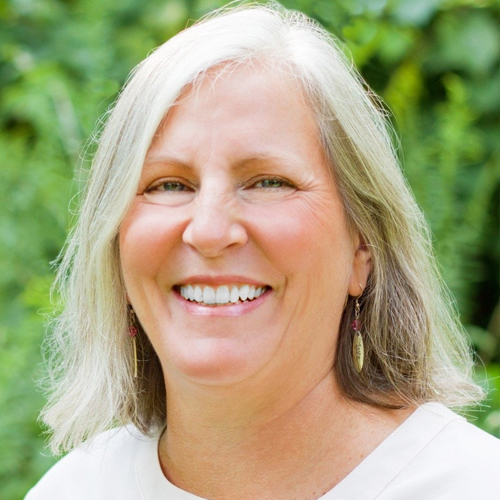
View Details / Enroll

Disparities in Perinatal Care and Outcomes Among Women With Disabilities: An Urgent Call for Inclusion

Dr. Monika Mitra is the Nancy Lurie Marks Associate Professor of Disability Policy, and Director of the Lurie Institute for Disability Policy at Brandeis University’s Heller School for Social Policy and Management. Her research focuses on the health and wellbeing of people with disabilities and their families. She co-leads the Community Living Policy Center which is aimed at improving policies and practices that advance community living outcomes for people with disabilities and the National Research Center for Parents with Disabilities which is focused on addressing knowledge gaps regarding the needs of parents with diverse disabilities and their families. Dr. Mitra is co-editor-in-chief of the Disability and Health Journal. Prior to joining Brandeis, she was Associate Professor in the Department of Family Medicine and Community Health at the University of Massachusetts Medical School.
In the last ten years, an emerging body of evidence has documented the disparities in perinatal care, quality, and outcomes of women with disabilities.
This presentation will provide an in-depth examination of the unmet needs and barriers to perinatal care among women with different disabilities. It will highlight disparities in pregnancy and birth outcomes among women with and without disabilities. It will also outline recommendations to women with disabilities who are considering pregnancy and examine the experiences and needs of health care practitioners in providing obstetric care to women with disabilities.
The findings for this presentation are informed by analyses of nationally representative surveys, population-based administrative data, and from interviews with disabled women and obstetric care clinicians from the United States. We will include findings on the perinatal health of women with physical disabilities, women who are deaf and hard of hearing, and women with intellectual and developmental disabilities.
This presentation will shed light on the unmet needs and barriers to care of women with disabilities during pregnancy and childbirth and emphasize the urgent need for policy and practice recommendations to improve perinatal care of women with disabilities.
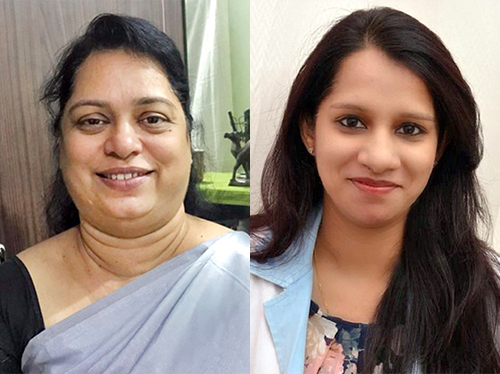

Ruth Patterson is Cloud Nine's P I O N E E R & Most Sought Lactation Specialist with 33 years of rich experience - currently practicing at Jayanagar C9, Bangalore-India and a visiting Lactation Consultant with 9 other Cloud Nine branches locally. She also heads the 24 Pan India Cloud Nine Hospitals as the Manager Lactation.
Ruth's 30+ years of rich experience includes maternity, allied health and nursing care, both in rural and urban sector in India & Abroad. Her exclusive 18 years of experience in Lactation services, she has acquired immense practical knowledge in the last decade to identify most critical disorders of mother and babies during breastfeeding stage. She is acclaimed to have expertise in a lesser-known art of re-lactation and induced lactation.
Ruth is known for her ability to identify the most critical issues in Breastfeeding and restore/re-initiate feeds. She is acclaimed for the use of Dynamic Taping (only available at Jayanagar C9) that arrests/prevents breast surgery/abscess. This Dynamic Taping practice, alongside, a Gynecologist, Pediatrician and Physiotherapist at Cloud Nine, is patented.
Ruth is a well sought out person for patient hearing and provides her expert comments in News columns/Media and also delivers guest lectures.
Dr. Shazia Shadab (PT) is the HOD of the Cloud nine physiotherapist department (PAN-India). She has 10 years experience and has been exceptional in her career with constant learning of new skills and improvising in her services.
She has multiple articles published in acclaimed newspapers
and many international certifications affiliated with her name like
pelvic girdle dysfunction, labor mechanism, and has done basic advanced certification in dynamic tapping to name a few. She also has pursued her post-graduation in research methodology after her bachelor's in physiotherapy.
She has always been keen to learn how to progress in a variety of different treatment approaches to find better results. This has helped her and her team to develop an intervention to prevent breast abscess with no surgical approach and has been granted a patent on "a device to promote feeding and scar-free treatment of breast abscess treatment during lactation".
She has worked along with professionals like Dr. Kishore Kumar, Dr. Prakash Kini, and Ruth Patterson, and has treated more than 100 patients suffering from breast abscesses without any surgical intervention. This would be an exceptional resource to help and provide better care.
She has extensive expertise in not only treating but also preventing multiple
musculoskeletal conditions during pregnancy and postpartum. She has been awarded the ABCD (Above and Beyond the Call on Duty) Award for her unwavering and selfless dedication to her patients.
"Lactational breast abscess is a common problem during breastfeeding. Surgical treatment of breast abscess involves maternal child separation and discontinuation of breast feeding. Surgical intervention with its inherent anxiety and probable unwanted side effects can deprive the lactating parent and baby of innumerable benefits. Non-surgical therapeutic modalities can potentially circumvent these problems. Dynamic taping with the help of a physiotherapist is a potential non-surgical intervention. This presentation presents the results of an observational, cohort study which was conducted in 20 consenting mothers with breast abscess attending an out-patient services tertiary maternal and neonatal unit. The mothers were administered two layers of dynamic tape as a single long segment on the breast avoiding the areola in an outward radiating direction to optimize lymphatic flow. Treatment was considered successful if there was resolution of the breast abscess with or without natural oozing."
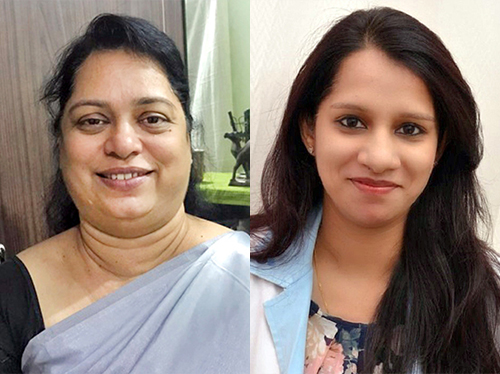
View Details / Enroll

Epilepsy in Pregnancy: Reducing Risks with a Multiprofessional Healthcare Team

Kim is an advanced clinical practitioner, independent nurse prescriber, registered nurse and registered midwife with additional qualifications in epilepsy, complex pregnancies, child protection, pharmacology, advanced decision making, epidemiology, diagnosis and history taking and research. She is a specialist in antiepileptic drug prescribing management & all aspects of reducing the impact of epilepsy. Since 2000, she has conducted a women with epilepsy service which provides holistic care and treatment support from teenage years to motherhood. In addition, she established and ran for 7 years a thriving community epilepsy specialist nursing service for Southampton and since 2017, a new rapidly expanding secondary care service for Winchester. Kim designed the maternity epilepsy toolkit embedded in the SUDEP (sudden unexpected death in epilepsy) Action professional checklist and focuses professionally and academically on safety and reducing the risk of avoidable adverse outcomes. She is an MBRRACE assessor and represents the Royal College of Midwives on behalf of midwives on the valproate stakeholders committee.
Epilepsy is a pre-existing, neurological disease present in 0.3%-0.5% of all pregnancies and is associated with increased risks of morbidity and mortality during the pregnancy continuum. These risks are often determined long before conception. This is because epilepsy and its treatment can impact on: education, employment, safety, menstruation, sexuality, fertility, contraception, pregnancy, breastfeeding, parenting, bone health, mental health, quality of life, driving status and independence. This trajectory and the quality of care received during the epilepsy journey can influence pregnancy presentation and outcome. The extremes can be a woman who has received expert epilepsy care and preconception preparation to ensure the risks were minimized when embarking on a planned pregnancy versus a woman who presents with an unplanned pregnancy having received no counselling, no epilepsy specialist care, prescribed a medication that is high risk to a developing baby whilst having uncontrolled seizures. These extremes highlight the need for maternity healthcare professionals to have awareness about the potential health burden associated with epilepsy, knowledge about seizure presentation and management, information about epilepsy treatments and understanding about potential risks to the women and her developing baby and how to reduce risks during pregnancy through joined-up, holistic, multi-professional healthcare provision.

View Details / Enroll
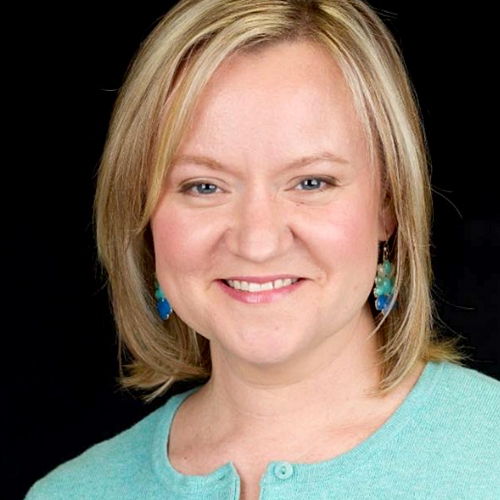
Foundations of TOTS Assessment: Anatomy, Appearance, and Function

Lisa Lahey RN, IBCLC, OMT has worked for 23 years in maternal child health as a nurse and lactation consultant in L/D, postpartum, newborn nursery, NICU, and perinatal education. Lisa is currently working on her master's degree for Family Nurse Practitioner. An IBCLC for 20 years, Lisa has a special interest and expertise in tethered oral tissues. Lisa’s private practice Advanced Breastfeeding Care provides home visits or office consults for complex feeding issues as well as joyful breastfeeding. Lisa also provides myofunctional therapy to babies, children, and adults in a functional orthodontic office. Lisa is a contributing author to the book Tongue Tied. Lisa enjoys teaching assessment fundamentals and oral exercises when she lectures at conferences and courses. Clinical photography and nature photos are also a favorite hobby. Most of all, she is a mom to five children (all were breastfed) who keep her busy and remind her daily of life’s joys and treasures traveling and hiking with her family to unplug from a busy pace in life.
The IBCLC must develop and expand knowledge of the 3 foundations key to TOTs assessment which are anatomy, appearance, and function. This talk will review anatomy and physiology concepts, explore appearance of frenulums, and discuss current functional screening tools that can be utilized for assessment.
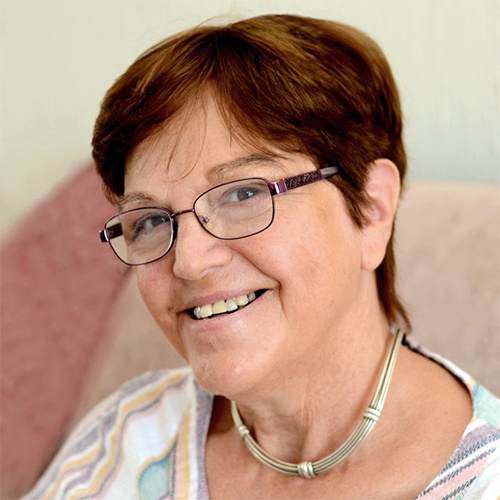

In her employed life Wendy was a community pharmacist and also worked in doctor surgeries supporting cost effective, evidence-based prescribing.
Wendy left paid work to concentrate on writing Breastfeeding and Medication (Routledge 2nd edition 2018), developing information and training material on drugs in breastmilk as well as setting up her own website www.breastfeeding-and-medication. She has also published Breastfeeding for Dads and Grandmas (Praeclarus Press) and Why Mothers Medication Matters (Pinter and Martin). She is also co editor of a book to be published January 2020 called A guide to breastfeeding for medical professionals (Routledge).
Wendy is known for her work on providing a service on the compatibility of drugs in breastmilk and has been a breastfeeding peer supporter for 30 years. She is passionate that breastfeeding should be valued by all and that medication should not be a barrier. She has 3 daughters and 5 grandchildren. All her family seem as passionate about breastfeeding as she is and currently all 3 of her daughters are breastfeeding.
She was awarded a Points of Light award by the Prime Minister in 2018 and nominated for an MBE in the New Year's Honours List 2018 for services to mothers and babies. She received her award at Windsor Castle in May 2019 from Her Majesty the Queen.
Topic: Medication and Breastmilk in the NICU - [View Abstract]
Topic: Pharmacokinetics and Clinical Implications of Drugs in Human Milk: The Substance-Exposed Infant - [View Abstract]
We know that the most common reason mums stop breastfeeding before they would otherwise choose is because they believe they don’t have enough breastmilk. In many cultures there a herbal remedies to increase milk supply. We have medicinal options available as well. What is the research behind the “magic wands”? Can any products cause harm rather than benefit? When should they be used and when is skilled breastfeeding support more important? Why is some populations is poor milk supply never a concern? Who is responsible for the perceived need to increase milk supply?
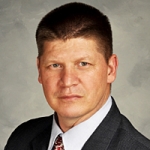
Human Milk Synthesis: Just When You Thought You Knew

Tom Johnston is unique as a midwife and lactation consultant and the father of eight breastfed children. Recently retired after 27 years in the US Army, he is now an Assistant Professor of Nursing at Methodist University where he teaches, among other things, Maternal-Child Nursing and Nutrition. You may have heard him at a number of conferences at the national level, to include the Association of Woman’s Health and Neonatal Nurses (AWHONN), the International Lactation Consultant’s Association (ILCA), or perhaps at dozens of other conferences across the country. In his written work he routinely addresses fatherhood and the role of the father in the breastfeeding relationship and has authored a chapter on the role of the father in breastfeeding for “Breastfeeding in Combat Boots: A survival guide to breastfeeding in the military”.
Topic: Human Milk Synthesis: Just When You Thought You Knew - [View Abstract]
Topic: New Insights Into the Maternal Child Microbiome - [View Abstract]
Topic: Promoting Provider Self-Efficacy in Breastfeeding Support - [View Abstract]
Topic: Still Swimming Upstream: Breastfeeding in a Formula Feeding World - [View Abstract]
Topic: The Making of Human Milk: A Clinical Update - [View Abstract]
Topic: The Maternal-Child Microbiome or: The “Oro-boobular axis” - [View Abstract]
Topic: The Maternal-Child Microbiome or: The “Oro-boobular axis” - [View Abstract]
Topic: The Perinatal Microbiome - [View Abstract]
Topic: Using Evidence to Develop Clinical Lactation Skills - [View Abstract]
"I didn't make enough milk!" We hear it on a regular basis from heartbroken new mothers. In fact, this is the number one factor contributing to breastfeeding failure after two weeks of age is a perception of inadequate milk production. This phenomenon of sudden onset lactation failure is widely accepted as a common occurrence among breastfeeding mothers. This topic has been the subject of a number of quality studies that have yielded a conflicting mix of responses from primary health care providers and lactation consultants alike. This discussion will attempt to shed light on the very different concepts of "Milk Production" vs. "Milk Synthesis" and will demonstrate how confusion between those two concepts have clouded the study of milk production, promote the fallacy of "insufficient milk production syndrome", and contribute to the failure of breastfeeding. This presentation will also attempt to provide a preliminary course of action to begin anew in milk production research and perhaps even provide a framework for helping the new mothers facing the milk supply challenge.
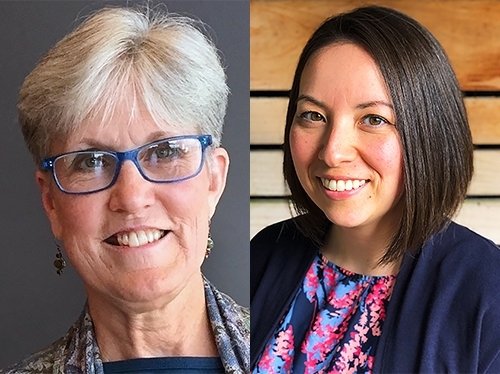

Dixie Whetsell, MS, IBCLC, has a Master’s Degree in Community Health Education from the University of Oregon. She began working with breastfeeding families in 1992 and became an IBCLC in 1998. She has worked as a lactation consultant in a variety of settings including private practice, county and state public health programs and high risk maternal and pediatric hospitals. She began teaching lactation training courses in 2003 and is currently an adjunct faculty member teaching in the Pathway 2 Lactation Training Program in the OHSU-PSU School of Public Health at Portland State University. She is a past presenter for the GOLD Perinatal Conference. She is an active member of the Oregon Washington Lactation Association, the US Lactation Consultant Association and the International Lactation Consultant Association. She was a founding Board Member for Northwest Mothers Milk Bank, a HMBANA non-profit donor milk bank.
Lisa Gonzales, BSN, RN, IBCLC earned her Bachelor of Science in Nursing from Linfield College. She started her nursing career as a Labor and Delivery nurse at a Level III OB hospital in 2006. After having her first baby, Lisa pursued lactation education and became an IBCLC in 2013. She made full career change in 2015 to become a lactation nurse in a high risk maternity and pediatric hospital, providing inpatient and outpatient consults to growing families. She is an active member of the Oregon Washington Lactation Association, the US Lactation Consultant Association and the International Lactation Consultant Association. Lisa currently helps families during in-home visits with her private practice.
This case describes a 32-year-old primiparous woman who experienced an anaphylactic reaction associated with breastfeeding and milk expression on postpartum day four. With each episode her symptoms worsened and she developed hives, edema and difficulty breathing and swallowing. She had to be treated for her anaphylactic reaction in a hospital ER and ICU and she was released on postpartum day five on antihistamines.
Lactation anaphylaxis is a very rare condition that was first reported in the scientific literature in 1991. Since then there have been 11 other reported cases. Lactation anaphylaxis can be life-threatening and symptoms can include a rash, hives, edema resulting in difficulty breathing or swallowing, a dangerous decrease in blood pressure and a loss of consciousness. We will review this case and do a brief review of the previous case reports. We will discuss the possible causes for lactation anaphylaxis, the related risk factors, common treatments and possible breastfeeding outcomes. In most cases with proper treatment and management breastfeeding and milk expression can continue. Enhanced awareness of and knowledge about this rare condition will allow lactation consultants and other members of the health care team to better support breastfeeding parents who experience lactation anaphylaxis.

View Details / Enroll
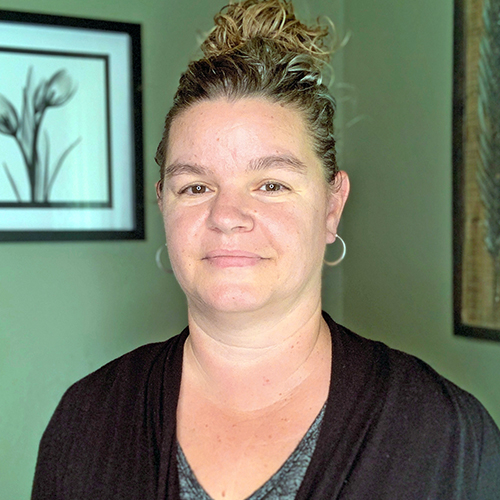
Lactation Skills for Supporting Dyads with Oral Restrictions

Christine Staricka is a Registered, International Board-Certified Lactation Consultant and trained childbirth educator. As the host of The Lactation Training Lab Podcast, her current role focuses on training and coaching current and aspiring lactation care providers. Christine created and developed The First 100 Hours© concept, an early lactation framework designed to support lactation care providers with the knowledge and mindset they need to help families optimize early lactation. Christine worked as a hospital-based IBCLC for 10 years and has over 20 years experience providing clinical lactation care and support. She provides clinical lactation care to families at Baby Café Bakersfield and serves as its Director. Christine recently completed 6 years of service on the Board of the United States Lactation Consultant Association (USLCA.) She holds a Bachelor's Degree from the University of Phoenix. She has been married for 27 years, lives in California, and is the proud mother of 3 amazing daughters.
Topic: Tongue-Tied and Troubled: A Breastfeeding Journey at Risk - [View Abstract]
Topic: Your Responsibility to the WHO Code: Evaluating Real-World Scenarios for Compliance - [View Abstract]
A growing body of work supports the lactation care provider in assessing, referring, and infant feeding after a revision of oral restrictions; far less has been said regarding ongoing lactation care when revision is not part of the plan in the short- or long-term. Whether because revision services are unavailable, inaccessible, or not desired by parents, the dyad that includes a baby with non-revised oral restrictions will require a customized plan to avoid problems of lactation related to infants with oral restrictions. This presentation will equip the lactation care provider with tools to support the identified population of dyads where the infant has or is suspected to have oral restrictions. (These tools shall include: a review of situations which might lead a dyad to be considered part of this specific population; a comprehensive understanding of the categories of potential problems of lactation associated with this population; and the creation of a lactation care plan with clinical skills specifically designed to consider and address the needs of a dyad in this population along the entire spectrum of normal lactation.) Lactation care providers in any setting and with any level of training will benefit from this review of the issue as it offers a deeper understanding of why particular tools, techniques, and routines might be required for this population as compared with other populations of dyads.





